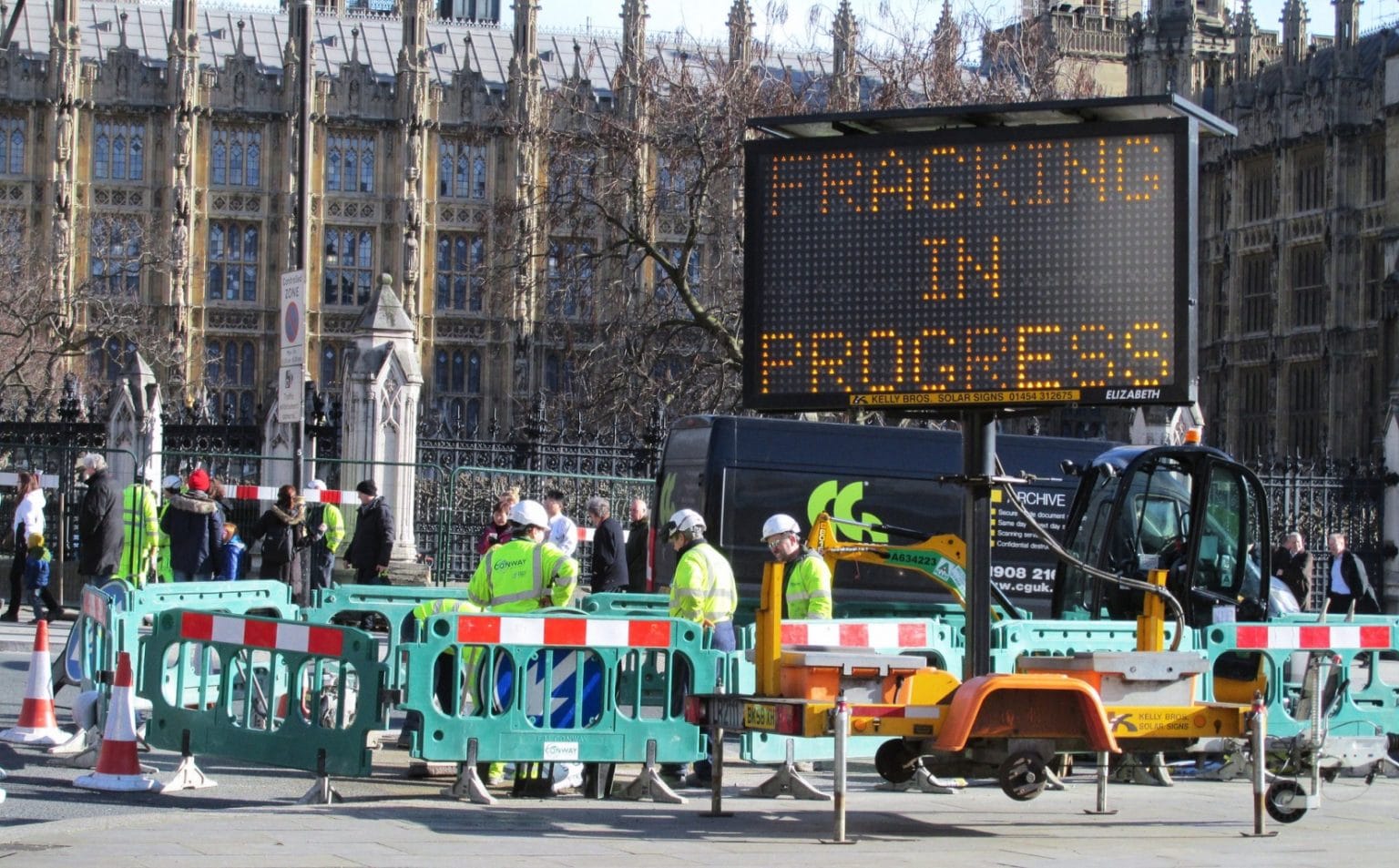It has been two weeks since county councillors in North Yorkshire gave the go ahead for the first fracking tests in the UK in five years.
England is still shaking from the decision, with residents, campaigners and environmentalists vowing to continue the fight against the potentially “devastating” tests for shale gas.
The councillors were under pressure to approve the tests from central government, which has pushed a pro-fracking agenda.
But why is England ploughing ahead with fracking, when elsewhere in Europe it is winding down? And should we be taking cues from our neighbouring countries, where the winds are starting to change?
EU Fracking Slow-Down
Spain, like the UK, has been a strong advocate of fracking, with a government that was approving ever more licences. Until recently, that is, when an anti-fracking resolution was approved by a majority of the political parties.
The vote was non-binding – but it signalled a mood change in a country that had wanted to follow the path of the USA, the world’s leading producer of shale oil and gas.
Fracking companies have been pulling out of other European countries as well where tests have yielded poor results.
French energy group Total last week returned the second of two shale gas licences to Denmark after finding too little shale to justify commercial extraction.
Friends of the Earth (FOE) campaigner Tony Bosworth warned that the UK is sticking its neck out on fracking, compared to its European counterparts.
“Increasingly England is out on a limb in pushing ahead with fracking while most others are being cautious,” said Bosworth.
“The situation in Poland is interesting: the government and industry were very positive, keen to push forward and drilled exploratory wells – but they didn’t find commercially viable quantities of gas and the big players have all pulled out.”
“It obviously won’t necessarily be the same in the UK but it’s a reminder that fracking in England won’t automatically work just because the industry wants it to.”
Public opinion is even further set against fracking in France and Bulgaria, which have both banned fracking. There are also moratoriums in Scotland, Wales and Holland. While in Germany, two parliamentary motions proposing a ban were introduced but, in the end, defeated in April.
The British government must learn lessons from other countries, Bosworth said: “The UK Government should be looking at the more cautious and precautionary attitude being adopted by other nations and regions.”
He also urged the government to take on board the “growing body of evidence about health concerns.”
UK Commitment
The government insists that shale will only ever be developed “in a safe way” for people and the environment, and will only take place in “appropriate locations”.
It believes fracking will be a “bridge to a greener future”.
Andrea Leadsom MP, energy and climate change minister, said on 25 May: “Home-grown gas can secure our energy future in a time when our traditional sources are in decline and we are seeking to move away from expensive foreign imports.”
Leadsom was speaking at the Shale World UK 2016 conference in London 25 May, just two days after North Yorkshire approved fracking despite widespread opposition. She added: “Unlocking the shale gas deep underground is too big an opportunity to pass up. It must be done safely and securely, but we can’t throw that opportunity away.”
So it seems England is set on fracking for the foreseeable future. Because it is a member state issue, fracking cannot be banned by the EU, even if the continent’s political will is changing.
But the EU can at least regulate fracking. And Brexit could lead to the dismantling of regulation on fracking, Bosworth of FoE warned: “In recent years the UK Government has been a leader in lobbying against tougher EU regulation of fracking.
“Although current UK regulations are inadequate in several ways, what comes from the EU is one of the stronger parts of UK regulation. So Brexit might mean a relaxation of regulations, which would fit in with the UK Government’s broader pro-fracking agenda.”
Photo: David Holt via Flickr
Subscribe to our newsletter
Stay up to date with DeSmog news and alerts






